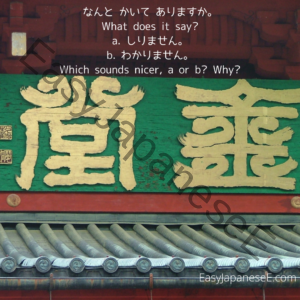I have re-organized grammar explanation posts so that you can build up your skills in order.
First download the list of vocabulary most likely used in the JLPT N5 exam here. It is based on the prescribed list for the pre-2010 exams.
Click the topic and another page will open to explain each item. Suggested activities are written next to the topic.
- Hello and Thank you
- My mum is nice. – Describe your family and things near you.
- I like sushi but I don’t like sashimi. – Describe what you like/dislike, what you want, what you are good at.
- I eat sushi. – Make three-part sentences using verbs.
- Yesterday, I ate sushi with a fork with my friends. – Expand three-part sentences using a phrase led by a particle. Talk about things in the past.
- Expanding a simple sentence using particles
- Expanding Simple Sentences with an adverb
- ~く/に [verb] (changing an adjective into an adverb)
- It’s 12:34pm on Thursday, 5 June. – Learn time related phrases, days of the week and how to say dates. This module is mainly for vocab learning.
- Time phrase during the day – あさ、ゆうがた、よる, etc.
- 2 coffee, please. – Learn counters and how to order something in a shop.
- There is a cat under the table. – Learn to describe where things are.
- I wanted to eat sushi and I ate too much. – Talk about what you want to do and learn more simple expressions using verbs.
- ~たいです
- ~すぎます
- ~がります
- ~に いきます/きます/かえります (purpose)
- I came to the library and I am reading a book now. Please be quiet. – Learn to use てform: connecting to verbs/adjectives, describe what you are doing and make a request.
- I haven’t finished reading the book yet. – Revise tenses and moods. Expand vocabulary.
- Let’s write a diary entry. I like watching soccer. – Let’s learn the plain form.
- Converting Polite form into Plain form
- AはB(だ)
- AはBじゃない/Bくない
- AはBだった/AはBかった
- AはBじゃなかった/AはBくなかった
- ~の (nominalisation)
- ~のがすきです
- ~のがじょうず/へたです
- ~でしょう (talking about weather)
- The book I’m reading now is very interesting. – Contact clause and expressions using plain form verbs/adjectives
- Do I have to do my homework now? – obligations, prohibitions, permissions, and requests not to do things.
- This book is more interesting than that book. – comparison and related expressions.
Verb Conjugations Videos for N5
N5 Vocabulary You Need to Be Careful about
- N5 Vocabulary
おなじ

おなじ is a frequently used word meaning "the same" or "identical." Native speakers use it very o...
青い vs 青の
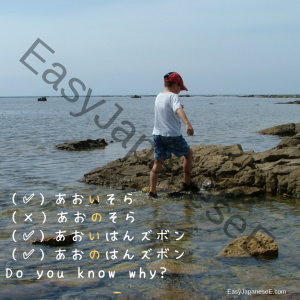
This post explains when 青い (adjective) and 青の (noun + の) are interchangeable or not. The s...
しりません vs しっていません

The English verb "to know" is usually translated as しっています in Japanese but the opposite,...
うれしい vs たのしい
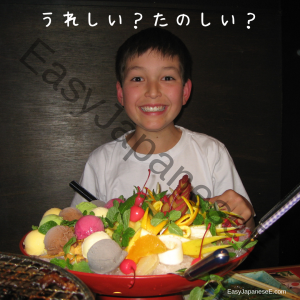
うれしい and たのしい can be used to describe a "happy" feeling, but they are not always int...
How to read temperature in Japanese

Reading a #number in a foreign language can sometimes be tricky. This post explains how to read a te...
天気 – weather

Weather is always a good topic to start a conversation on. This post introduces and explains common ...
そうじ – cleaning
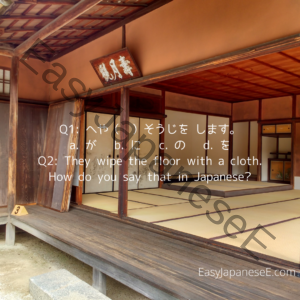
そうじ is the generic Japanese noun for "cleaning." This post talks about various Japanese words ...
cry, weep, sob, …なく

This post is about different ways of crying, which is often described with なく in Japanese. Read ...
laugh, smile, chuckle, giggle…わらう
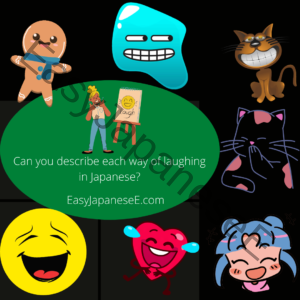
This post is about laughing. The most common Japanese word for "to laugh" is わらう and by adding...
Time Phrases during the Day
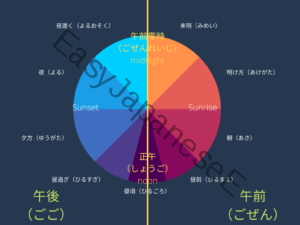
Learn what time phrase we can use for each time of the day in Japanese as well as what we say for "e...
Describing Occasions/Items
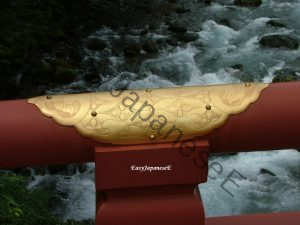
The "xxxは△△△です。" pattern is not only for describing people but can be used for describ...
